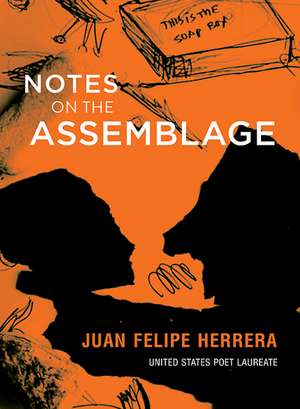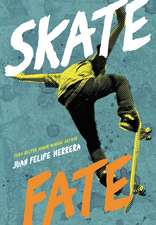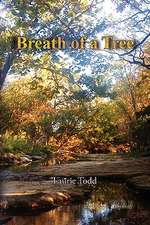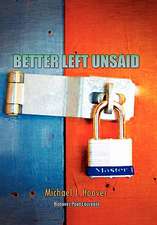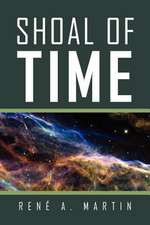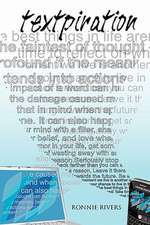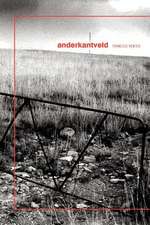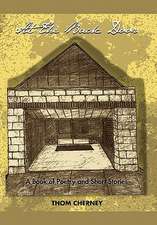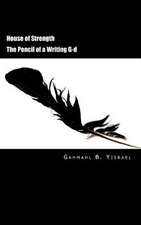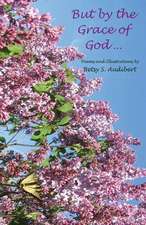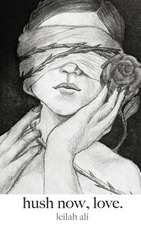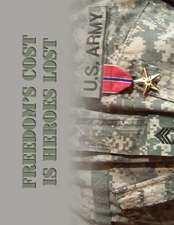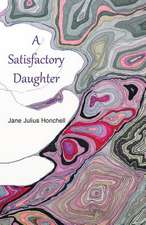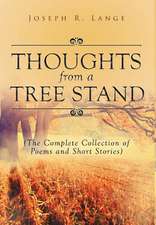Notes on the Assemblage
Autor Juan Felipe Herreraen Limba Engleză Paperback – 14 sep 2015
Juan Felipe Herrera, the first Latino Poet Laureate of the United States and son of Mexican immigrants, grew up in the migrant fields of California.
Exuberant and socially engaged, reflective and healing, this collection of new work from the nation's first Latino Poet Laureate is brimming with the wide-open vision and hard-won wisdom of a poet whose life and creative arc have spanned chasms of culture in an endless crossing, dreaming and back again.
"Juan Felipe Herrera's family has gone from migrant worker to poet laureate of the United States in one generation. One generation. I am an adamant objector to the Horatio Alger myth of pulling oneself up by the bootstraps, but Herrera's story is one of epic American proportions. The heads carved into my own Mount Rushmás would be Cesar Chavez, Dolores Huerta, Frida Kahlo, El Chapulín Colorado, Selena, and Juan Felipe Herrera. Notes from the Assemblage further carves out Herrera's place in American letters."—David Tomas Martinez
"At home with field workers, wage slaves, the homeless, little children, old folks, artists, traditionalists, the avant-garde, students, scholars and prisoners, the bilingual Juan Felipe Herrera is the real thing: a populist treasure. He will fulfill his appointment as U.S. Poet Laureate with the same high energy, savvy, passion, compassion, commitment and playfulness that his art and life's have always embodied. Bravo! Bravo!"—Al Young
"While reporters can give you the what, when, and where of a war, a poet with the enormous gifts of Juan Herrera can give you its soul."—Ishmael Reed
"I am proud that Juan Felipe Herrera has been appointed U.S. Poet Laureate, bringing his truthful, beautiful voice to all of us universally. As the first Chicano Laureate, he will empower all diverse cultures."—Janice Mirikitani
"Herrera is … a sometimes hermetic, wildly inventive, always unpredictable poet, whose work commands attention for its style alone … Many poets since the 1960s have dreamed of a new hybrid art, part oral, part written, part English, part something else: an art grounded in ethnic identity, fueled by collective pride, yet irreducibly individual too. Many poets have tried to create such an art: Herrera is one of the first to succeed."—The New York Times
"Herrera has the unusual capacity to write convincing political poems that are as personally felt as poems can be."—National Public Radio
Exuberant and socially engaged, reflective and healing, this collection of new work from the nation's first Latino Poet Laureate is brimming with the wide-open vision and hard-won wisdom of a poet whose life and creative arc have spanned chasms of culture in an endless crossing, dreaming and back again.
"Juan Felipe Herrera's family has gone from migrant worker to poet laureate of the United States in one generation. One generation. I am an adamant objector to the Horatio Alger myth of pulling oneself up by the bootstraps, but Herrera's story is one of epic American proportions. The heads carved into my own Mount Rushmás would be Cesar Chavez, Dolores Huerta, Frida Kahlo, El Chapulín Colorado, Selena, and Juan Felipe Herrera. Notes from the Assemblage further carves out Herrera's place in American letters."—David Tomas Martinez
"At home with field workers, wage slaves, the homeless, little children, old folks, artists, traditionalists, the avant-garde, students, scholars and prisoners, the bilingual Juan Felipe Herrera is the real thing: a populist treasure. He will fulfill his appointment as U.S. Poet Laureate with the same high energy, savvy, passion, compassion, commitment and playfulness that his art and life's have always embodied. Bravo! Bravo!"—Al Young
"While reporters can give you the what, when, and where of a war, a poet with the enormous gifts of Juan Herrera can give you its soul."—Ishmael Reed
"I am proud that Juan Felipe Herrera has been appointed U.S. Poet Laureate, bringing his truthful, beautiful voice to all of us universally. As the first Chicano Laureate, he will empower all diverse cultures."—Janice Mirikitani
"Herrera is … a sometimes hermetic, wildly inventive, always unpredictable poet, whose work commands attention for its style alone … Many poets since the 1960s have dreamed of a new hybrid art, part oral, part written, part English, part something else: an art grounded in ethnic identity, fueled by collective pride, yet irreducibly individual too. Many poets have tried to create such an art: Herrera is one of the first to succeed."—The New York Times
"Herrera has the unusual capacity to write convincing political poems that are as personally felt as poems can be."—National Public Radio
Preț: 77.10 lei
Nou
Puncte Express: 116
Preț estimativ în valută:
14.75€ • 15.46$ • 12.23£
14.75€ • 15.46$ • 12.23£
Carte disponibilă
Livrare economică 19 martie-02 aprilie
Preluare comenzi: 021 569.72.76
Specificații
ISBN-13: 9780872866973
ISBN-10: 0872866971
Pagini: 104
Dimensiuni: 140 x 191 x 8 mm
Greutate: 0.14 kg
Editura: City Lights Publishers
Colecția City Lights Publishers
ISBN-10: 0872866971
Pagini: 104
Dimensiuni: 140 x 191 x 8 mm
Greutate: 0.14 kg
Editura: City Lights Publishers
Colecția City Lights Publishers
Recenzii
"Herrera’s latest collection is a book full of outrages—bigotry, poverty, murder—but not a book that wants to burn things to the ground. The fire that appears again and again in Herrera’s poetry exists to illuminate, to make beautiful, to purify."—Eric McHenry, The New York Times
“Juan Felipe Herrera’s appointment is a timely one, particularly as we enter an election year that’s fraught with the usual anxiety and misinformation about immigration issues. Herrera is a beloved poet whose extensive body of work reminds us that the politicized world of the immigrant, and of the Mexican community within the United States in particular, also participate in shaping the rich cultural identity of American literature.”—Rigoberto Gonzalez
"As he assumes his post as the 21st U.S. Poet Laureate—Herrera is releasing a visually acute, punch-in-the-gut collection that shows off both his craft and his heart. Wound even more tightly than his previous collections … As always, Herrera’s signature language is immediate, visceral, in the moment, sometimes razzy-jazzy, and compacted to create intensive feeling. Urgently written and important to read, even if Herrera weren’t in the Library of Congress limelight.”—Libary Journal, starred review
"Notes on the Assemblage provides a splendid introduction to the expansive work of Juan Felipe Herrera, the nation’s new poet laureate. … The son of migrant farm workers, Herrera powerfully conveys the experience of migrants who have languished in detention camps and feel apprehensive as they approach the U.S. border. He also knows, firsthand, the frustration of being labeled 'half Mexican,' as if he were neither a true Mexican nor a real American … Herrera’s background as a performance artist shows in many poems, which come alive when read aloud. Herrera, who has published multiple poetry collections and young-adult novels, easily handles an array of topics and knows how to capture both the pulse of the news and timeless subjects such as people’s deep longings for justice. The collection ends with a moving poem about the nine people killed this year in a South Carolina church: 'they are not 9 they / are each one / alive / we do not know / you have a poem to offer / it is made of action — you must / search for it run.’”—The Washington Post
"Herrera’s new bilingual collection arrives in the same month as his appointment as the 21st US Poet Laureate, and the first ever Hispanic person to hold the office, goes into effect. Herrera offers glorious reflections: 'it can begin with clouds how they fray how they enter / then how they envelop the earth.' He also conjures powerful outcries, like his poem 'Ayotzinapa,' which honors '42 students from the Ayotzinapa Normal School [who] went missing after police in the city of Iguala, Guerrero, Mexico opened fire on their buses and kidnapped a group of 43.' And his poem 'Almost Livin’ Almost Dyin’' honors Michael Brown, whose death at the hands of a police officer set off protests in Ferguson, Missouri, in 2014. Herrera offers intimate odes to recently departed poets Wanda Coleman and Jack Gilbert, Jayne Cortez, Phil Levine, José Montoya. This is Herrera at his best, a poet who chronicles our times."—BBC
"This has the feeling of a homecoming, from its dedication to the late Michele Serros to its encomia for Wanda Coleman, Jack Gilbert and Jayne Cortez. And why not? Herrera, the former California poet laureate who was named U.S. poet laureate in June, has long written out of a sense of community. This new collection is generous, unexpected, playful and pointed, reminding us of our shared humanity. 'we are all still burnin’,' he declares in 'Almost Livin' Almost Dyin’.' 'can you feel me swaggin' tall and driving low’”—Los Angeles Times
"In his newest volume of poetry, Notes on the Assemblage, Herrera reflects on the deaths of black Americans at the hands of police officers, the disappearance of 43 students in Mexico, his Mexican heritage, and the meaning of art. Herrera pivots from the political to the poignant, calling out the absurdities and sweet moments of modern life.”—The Boston Globe
"Juan Felipe Herrera is at the top of his game … Concurrent with his assumption of the Laureateship is his new book, Notes on the Assemblage, which shows off this writer's many strengths and varied capacities … This is deep yet accessible stuff, pertinent to all of this book's political concerns, yet metaphysical and existential in a basic way that any poetry reader can relate to. Herrera, who ambivalently describes himself in another poem as 'One half Mexican the other half/ Mexican, then the half against itself,' also posits himself as an everyman, as bewildered as the rest of us … he's ready to carry his poems tall on our behalf, and for us to join him.”—Craig Morgan Teicher, NPR Books
"Herrera’s pacifist sentiments surface throughout the collection, an assemblage indeed of moments that demand pause, reflection, and ultimately, action … The lesson in Notes on the Assemblage [is] to shorten the distance to knowledge and awareness, to close the space between those who suffer and those who can respond to that suffering. Call it building community or call it healing, in Herrera’s books it is absolutely an essential responsibility because it generates, above all else, hope.”—Los Angeles Review of Books
“[Juan Felipe Herrera] has captured here on the page with words what is both tangible and ephemeral, the exquisite and the political, and he has accomplished the difficult feat of not being trite under the circumstances. He has done it with grace and with spacing that sets a visual pace that provides perfect scaffolding.”—The Rumpus
"Notes on the Assemblage brings a sorrowful beat and a doleful swagger to subjects as urgent as the Black Lives Matter movement and the daily swell of atrocities weathered in Mexico … Linking themes as disparate as the LA Riots and avant-garde Italian cinema, there is a tone of casual esotericism in his verse. Herrera’s lines often ape e.e. cummings, and more or less assume the reader’s familiarity with the dadaist Hugo Ball. However obscure his arcana might be, the poet’s voice remains gracious and non-exclusive. If there is a brotherhood out there, he seems to say, it is forged around the pangs of threat that compel people to unite and to incite. As far as Chicano literature is concerned, those corridos that started it all went on to find their most recognizable form over a century later with the work of Rudolfo Anaya before happily culminating into a kind of universal crossover appeal with the adolescence-centered stories of Sandra Cisneros. Herrera’s work, sticking to the strictures of sound and symbol, offers ample example that this socially conscious class of literature might work best as it approaches song."—San Antonio Current
"The latest collection from Juan Felipe Herrera, the nation's new poet laureate, covers an expansive range of forms: elegies for lost friends, long polyvocal narratives, ekphrastic poems, language splintered into shapes. Frequently profound and often furious, the collection is at its most agonized when Herrera rages against an epidemic of unjust deaths: '& your body's / on the fence & your ID's in the air & the shots / get fired.' He even fits danger and sorrow into white space."—Camila Domonoske, NPR's The Two-Way
"Newly appointed U.S. Poet Laureate Juan Felipe Herrera’s Notes on the Assemblage is an urgent, powerful collection with impressive range—Herrera’s poignant poems address everything from ongoing political issues in America to his Mexican heritage and experience as the son of migrant workers. Notes on the Assemblage is more than merely important; it is essential, a must-read.”—BuzzFeed
"In Notes on the Assemblage, U.S. Poet Laureate Juan Felipe Herrera appeals to Americans and artists. Herrera’s forceful poetry speaks directly and powerfully, like the address of a leader rousing his battalions to action: 'freedom for you for me why do we / not speak.' Looking directly at the most devastating events of our moment—'the man with the choke-hold,' the '9 killed in Charleston, South Carolina,’ “'Trayvon Martin face down'—he forces us to confront society and its paradoxes. His summons links unadorned, unforgiving description with figurative language: 'each bone / cannot be chained to the abyss'; 'why / does it / blossom torches.' Indeed, the eradication of binaries (law versus freedom; art versus life; Spanish versus English) is central to Herrera’s work. Poems throughout the collection appear first in Spanish and then in English. At their most powerful these pieces infuse each language with the other:'“de las cumbres brujas ripping spirit flesh blue madness locuras dentro.' Herrera also obliterates the passive relationship between a work of art and its observer. He is intimately concerned with what art does, 'it follows you passes you dissolves ahead of you where / it is waiting for you when you get there you will not / know it until you see that it is seeing you seeing you.' The stakes of this engagement for our communal body are viscerally felt: 'we are not what we thought—it is / not who we were or / what we want to be.’"—Boston Review
“United States Poet Laureate Juan Felipe Herrera is the son of immigrants, and his poetry collection Notes on the Assemblage touches on the migrant experience and politics, subjects that take on considerable weight particularly during an election year.”—Florida Agenda
“Juan Felipe Herrera’s appointment is a timely one, particularly as we enter an election year that’s fraught with the usual anxiety and misinformation about immigration issues. Herrera is a beloved poet whose extensive body of work reminds us that the politicized world of the immigrant, and of the Mexican community within the United States in particular, also participate in shaping the rich cultural identity of American literature.”—Rigoberto Gonzalez
"As he assumes his post as the 21st U.S. Poet Laureate—Herrera is releasing a visually acute, punch-in-the-gut collection that shows off both his craft and his heart. Wound even more tightly than his previous collections … As always, Herrera’s signature language is immediate, visceral, in the moment, sometimes razzy-jazzy, and compacted to create intensive feeling. Urgently written and important to read, even if Herrera weren’t in the Library of Congress limelight.”—Libary Journal, starred review
"Notes on the Assemblage provides a splendid introduction to the expansive work of Juan Felipe Herrera, the nation’s new poet laureate. … The son of migrant farm workers, Herrera powerfully conveys the experience of migrants who have languished in detention camps and feel apprehensive as they approach the U.S. border. He also knows, firsthand, the frustration of being labeled 'half Mexican,' as if he were neither a true Mexican nor a real American … Herrera’s background as a performance artist shows in many poems, which come alive when read aloud. Herrera, who has published multiple poetry collections and young-adult novels, easily handles an array of topics and knows how to capture both the pulse of the news and timeless subjects such as people’s deep longings for justice. The collection ends with a moving poem about the nine people killed this year in a South Carolina church: 'they are not 9 they / are each one / alive / we do not know / you have a poem to offer / it is made of action — you must / search for it run.’”—The Washington Post
"Herrera’s new bilingual collection arrives in the same month as his appointment as the 21st US Poet Laureate, and the first ever Hispanic person to hold the office, goes into effect. Herrera offers glorious reflections: 'it can begin with clouds how they fray how they enter / then how they envelop the earth.' He also conjures powerful outcries, like his poem 'Ayotzinapa,' which honors '42 students from the Ayotzinapa Normal School [who] went missing after police in the city of Iguala, Guerrero, Mexico opened fire on their buses and kidnapped a group of 43.' And his poem 'Almost Livin’ Almost Dyin’' honors Michael Brown, whose death at the hands of a police officer set off protests in Ferguson, Missouri, in 2014. Herrera offers intimate odes to recently departed poets Wanda Coleman and Jack Gilbert, Jayne Cortez, Phil Levine, José Montoya. This is Herrera at his best, a poet who chronicles our times."—BBC
"This has the feeling of a homecoming, from its dedication to the late Michele Serros to its encomia for Wanda Coleman, Jack Gilbert and Jayne Cortez. And why not? Herrera, the former California poet laureate who was named U.S. poet laureate in June, has long written out of a sense of community. This new collection is generous, unexpected, playful and pointed, reminding us of our shared humanity. 'we are all still burnin’,' he declares in 'Almost Livin' Almost Dyin’.' 'can you feel me swaggin' tall and driving low’”—Los Angeles Times
"In his newest volume of poetry, Notes on the Assemblage, Herrera reflects on the deaths of black Americans at the hands of police officers, the disappearance of 43 students in Mexico, his Mexican heritage, and the meaning of art. Herrera pivots from the political to the poignant, calling out the absurdities and sweet moments of modern life.”—The Boston Globe
"Juan Felipe Herrera is at the top of his game … Concurrent with his assumption of the Laureateship is his new book, Notes on the Assemblage, which shows off this writer's many strengths and varied capacities … This is deep yet accessible stuff, pertinent to all of this book's political concerns, yet metaphysical and existential in a basic way that any poetry reader can relate to. Herrera, who ambivalently describes himself in another poem as 'One half Mexican the other half/ Mexican, then the half against itself,' also posits himself as an everyman, as bewildered as the rest of us … he's ready to carry his poems tall on our behalf, and for us to join him.”—Craig Morgan Teicher, NPR Books
"Herrera’s pacifist sentiments surface throughout the collection, an assemblage indeed of moments that demand pause, reflection, and ultimately, action … The lesson in Notes on the Assemblage [is] to shorten the distance to knowledge and awareness, to close the space between those who suffer and those who can respond to that suffering. Call it building community or call it healing, in Herrera’s books it is absolutely an essential responsibility because it generates, above all else, hope.”—Los Angeles Review of Books
“[Juan Felipe Herrera] has captured here on the page with words what is both tangible and ephemeral, the exquisite and the political, and he has accomplished the difficult feat of not being trite under the circumstances. He has done it with grace and with spacing that sets a visual pace that provides perfect scaffolding.”—The Rumpus
"Notes on the Assemblage brings a sorrowful beat and a doleful swagger to subjects as urgent as the Black Lives Matter movement and the daily swell of atrocities weathered in Mexico … Linking themes as disparate as the LA Riots and avant-garde Italian cinema, there is a tone of casual esotericism in his verse. Herrera’s lines often ape e.e. cummings, and more or less assume the reader’s familiarity with the dadaist Hugo Ball. However obscure his arcana might be, the poet’s voice remains gracious and non-exclusive. If there is a brotherhood out there, he seems to say, it is forged around the pangs of threat that compel people to unite and to incite. As far as Chicano literature is concerned, those corridos that started it all went on to find their most recognizable form over a century later with the work of Rudolfo Anaya before happily culminating into a kind of universal crossover appeal with the adolescence-centered stories of Sandra Cisneros. Herrera’s work, sticking to the strictures of sound and symbol, offers ample example that this socially conscious class of literature might work best as it approaches song."—San Antonio Current
"The latest collection from Juan Felipe Herrera, the nation's new poet laureate, covers an expansive range of forms: elegies for lost friends, long polyvocal narratives, ekphrastic poems, language splintered into shapes. Frequently profound and often furious, the collection is at its most agonized when Herrera rages against an epidemic of unjust deaths: '& your body's / on the fence & your ID's in the air & the shots / get fired.' He even fits danger and sorrow into white space."—Camila Domonoske, NPR's The Two-Way
"Newly appointed U.S. Poet Laureate Juan Felipe Herrera’s Notes on the Assemblage is an urgent, powerful collection with impressive range—Herrera’s poignant poems address everything from ongoing political issues in America to his Mexican heritage and experience as the son of migrant workers. Notes on the Assemblage is more than merely important; it is essential, a must-read.”—BuzzFeed
"In Notes on the Assemblage, U.S. Poet Laureate Juan Felipe Herrera appeals to Americans and artists. Herrera’s forceful poetry speaks directly and powerfully, like the address of a leader rousing his battalions to action: 'freedom for you for me why do we / not speak.' Looking directly at the most devastating events of our moment—'the man with the choke-hold,' the '9 killed in Charleston, South Carolina,’ “'Trayvon Martin face down'—he forces us to confront society and its paradoxes. His summons links unadorned, unforgiving description with figurative language: 'each bone / cannot be chained to the abyss'; 'why / does it / blossom torches.' Indeed, the eradication of binaries (law versus freedom; art versus life; Spanish versus English) is central to Herrera’s work. Poems throughout the collection appear first in Spanish and then in English. At their most powerful these pieces infuse each language with the other:'“de las cumbres brujas ripping spirit flesh blue madness locuras dentro.' Herrera also obliterates the passive relationship between a work of art and its observer. He is intimately concerned with what art does, 'it follows you passes you dissolves ahead of you where / it is waiting for you when you get there you will not / know it until you see that it is seeing you seeing you.' The stakes of this engagement for our communal body are viscerally felt: 'we are not what we thought—it is / not who we were or / what we want to be.’"—Boston Review
“United States Poet Laureate Juan Felipe Herrera is the son of immigrants, and his poetry collection Notes on the Assemblage touches on the migrant experience and politics, subjects that take on considerable weight particularly during an election year.”—Florida Agenda
Notă biografică
Appointed as the U.S. Poet Laureate in 2015, Juan Felipe Herrera is the son of migrant farm workers, and was educated at UCLA and Stanford University, and received his MFA from the University of Iowa Writers’ Workshop. His numerous poetry collections include 187 Reasons Mexicanos Can’t Cross the Border: Undocuments 1971-2007, Half of the World in Light: New and Selected Poems (2008), and Border-Crosser with a Lamborghini Dream (1999). In addition to publishing more than a dozen collections of poetry, Herrera has written short stories, young adult novels, and children’s literature.
In 2012, Herrera was named California's poet laureate. He has won the Hungry Mind Award of Distinction, the Focal Award, two Latino Hall of Fame Poetry Awards, and a PEN West Poetry Award. His honors include the UC Berkeley Regent’s Fellowship as well as fellowships from the National Endowment for the Arts, the Bread Loaf Writers’ Conference, and the Stanford Chicano Fellows. He has also received several grants from the California Arts Council.
Herrera is also a performance artist and activist on behalf of migrant and indigenous communities and at-risk youth. His creative work often crosses genres, including poetry opera and dance theater. His children’s book, The Upside Down Boy (2000), was adapted into a musical. His books for children and young adults have won several awards, including Calling the Doves (2001), which won the Ezra Jack Keats Award, and Crashbomlove (1999), a novel-in-verse for young adults which won the Americas Award. His book Half The World in Light is a finalist for the National Book Critics Circle prize in 2009.
In 2012, Herrera was named California's poet laureate. He has won the Hungry Mind Award of Distinction, the Focal Award, two Latino Hall of Fame Poetry Awards, and a PEN West Poetry Award. His honors include the UC Berkeley Regent’s Fellowship as well as fellowships from the National Endowment for the Arts, the Bread Loaf Writers’ Conference, and the Stanford Chicano Fellows. He has also received several grants from the California Arts Council.
Herrera is also a performance artist and activist on behalf of migrant and indigenous communities and at-risk youth. His creative work often crosses genres, including poetry opera and dance theater. His children’s book, The Upside Down Boy (2000), was adapted into a musical. His books for children and young adults have won several awards, including Calling the Doves (2001), which won the Ezra Jack Keats Award, and Crashbomlove (1999), a novel-in-verse for young adults which won the Americas Award. His book Half The World in Light is a finalist for the National Book Critics Circle prize in 2009.
Descriere
Juan Felipe Herrera, son of Mexican immigrants, is the new Poet Laureate of the U.S., the nation’s first Latino laureate.
